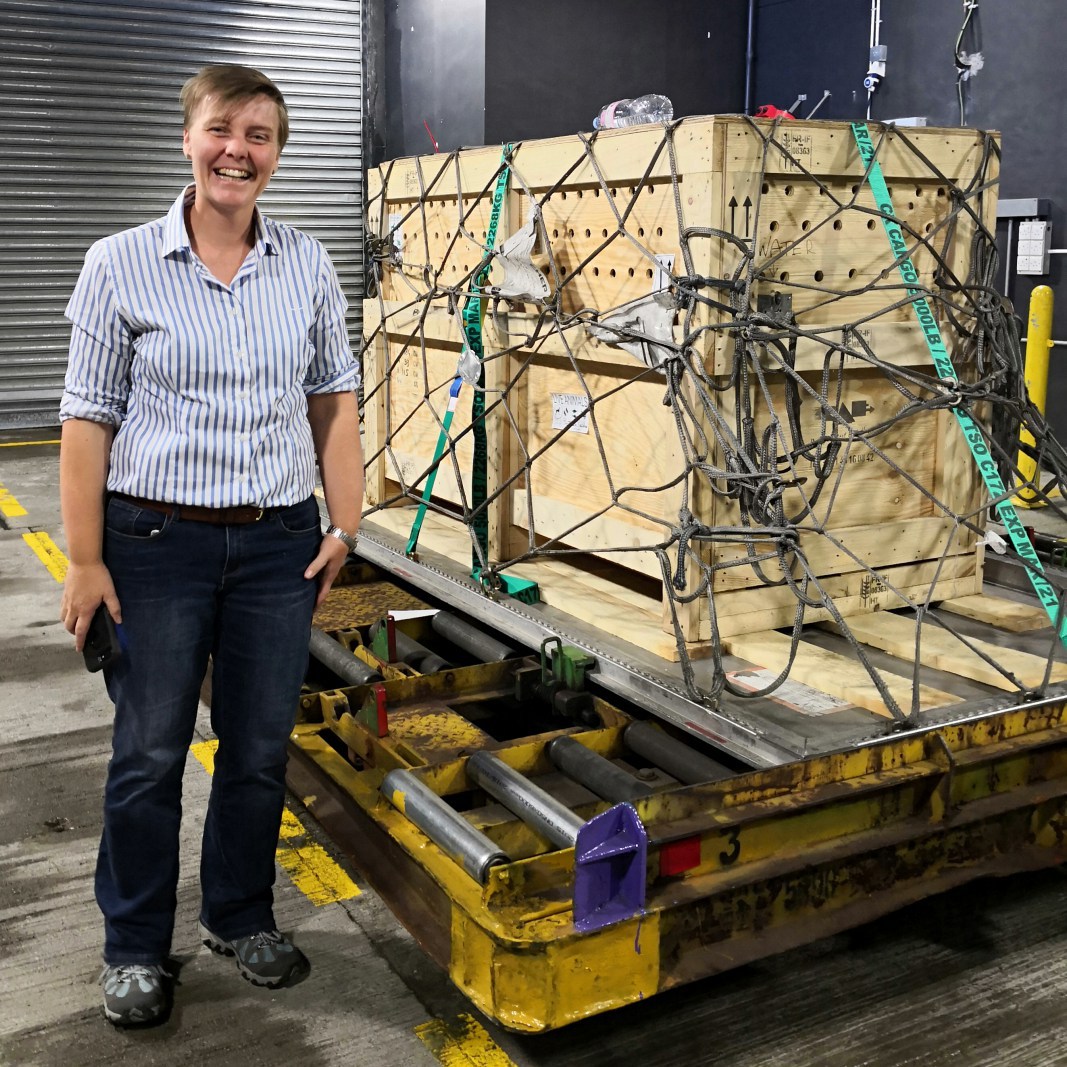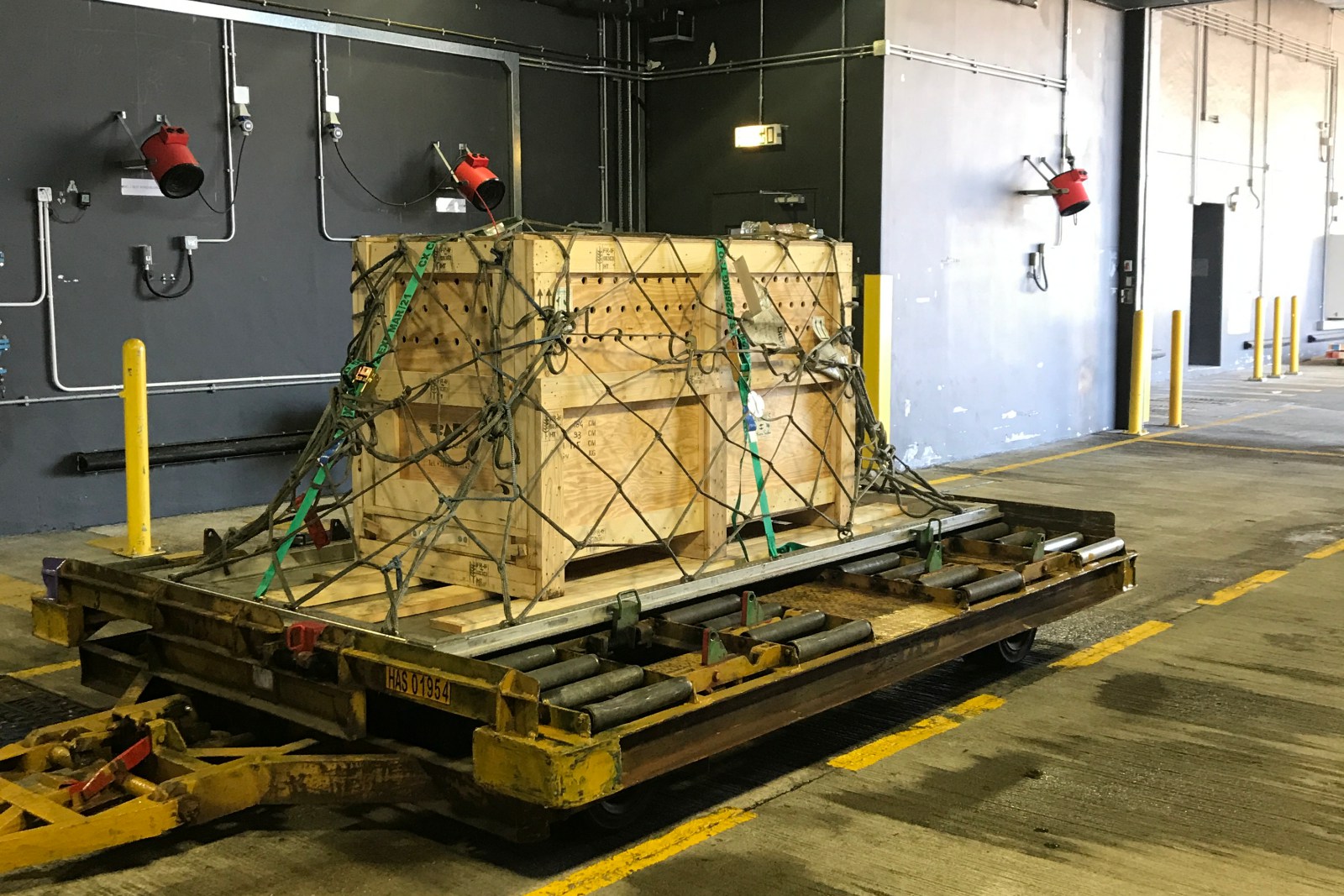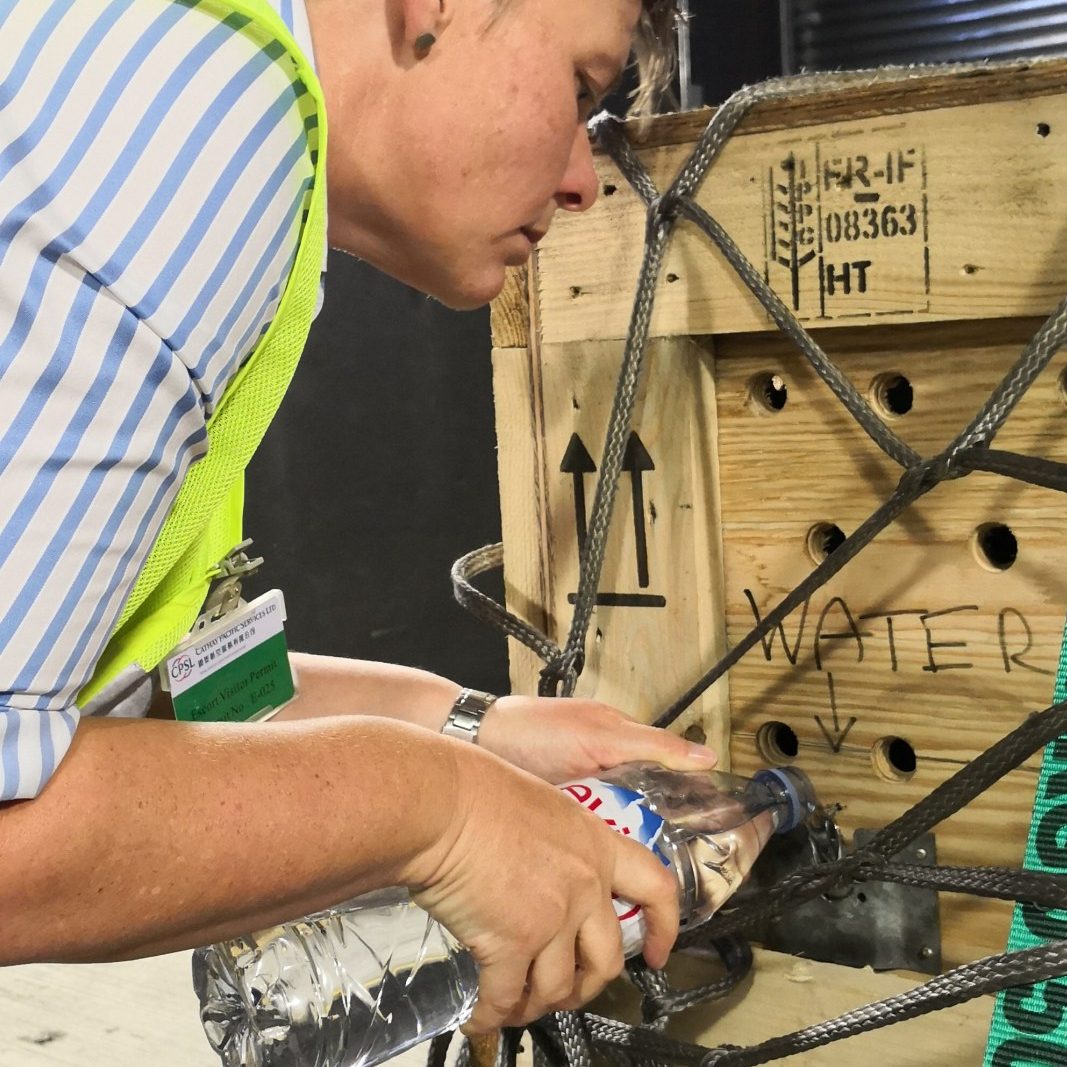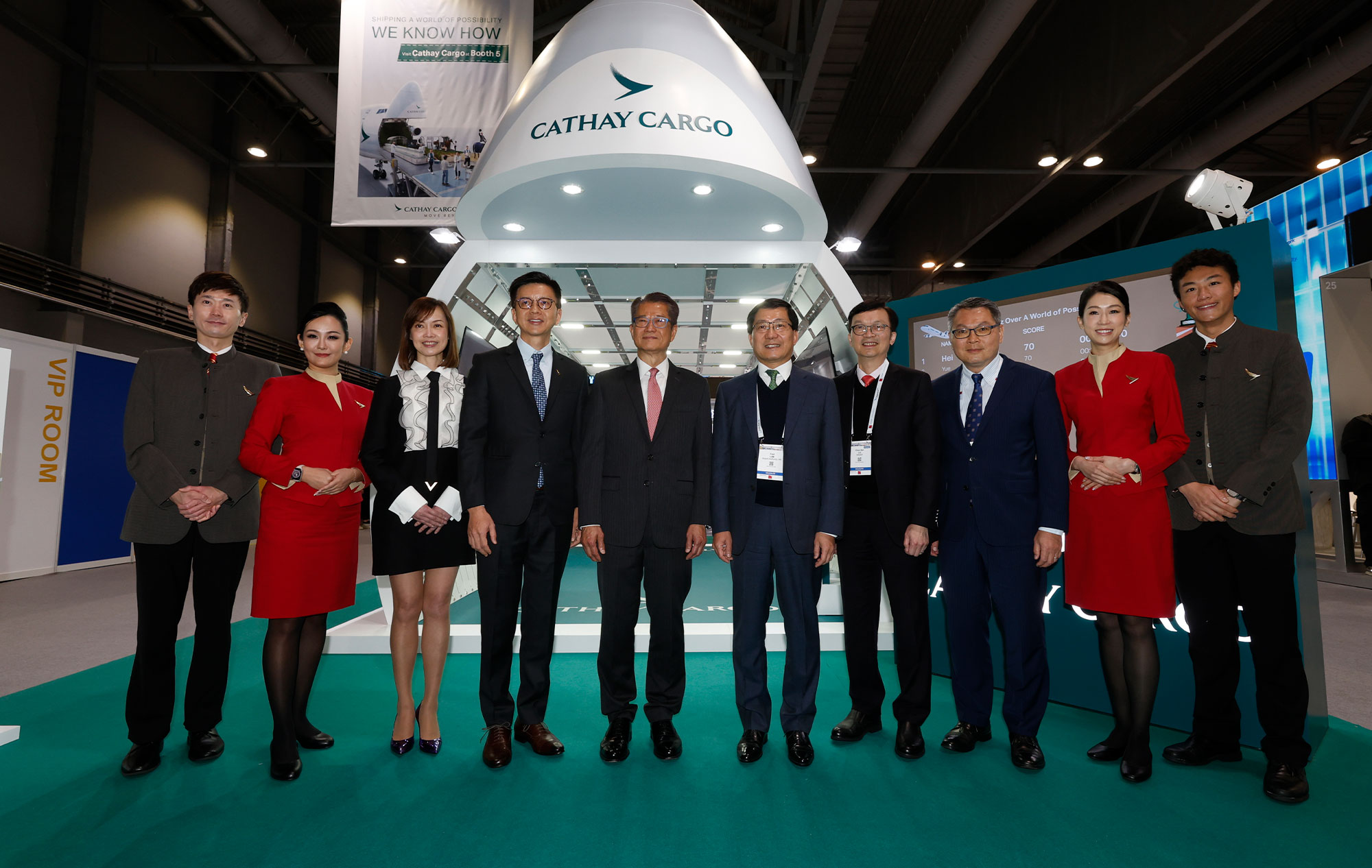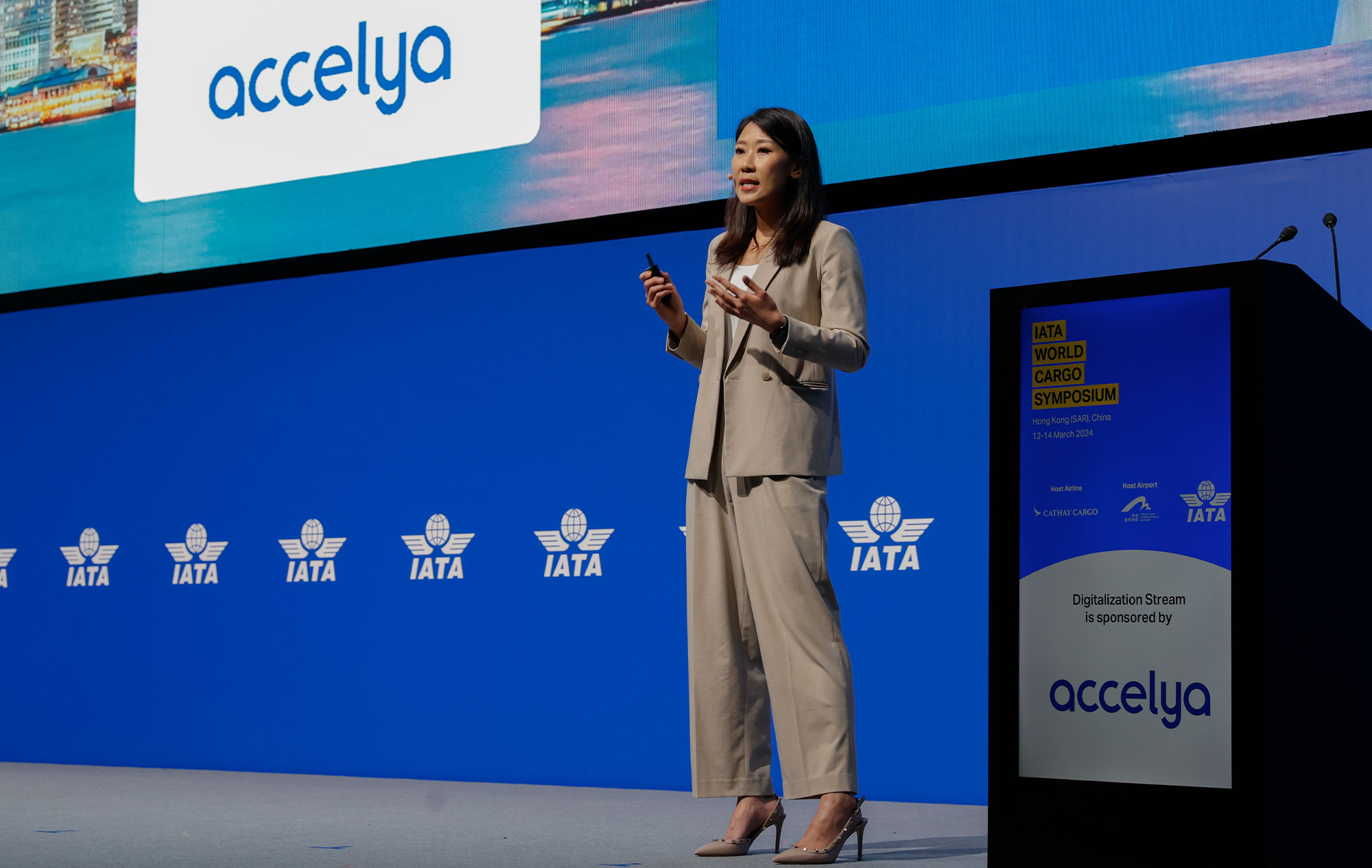Cathay Pacific welcomed a rare member of the big cat family to Hong Kong in January. Yakalla, a Sri Lankan leopard, made a six-hour stopover at the Large Animal Handling Centre in the Cathay Pacific Cargo Terminal in January, en route to Canberra from Paris.
Seven year-old Yakalla is joining an international breeding programme to help conserve the species, and to keep the gene pool as wide as possible. As with many endangered animals, destruction of habitat is putting real pressure on the species.
Jayne Weller, Senior Veterinarian at the National Zoo, Canberra, was in Hong Kong to check on Yakalla before she embarked on the final leg of her journey to Sydney and the three-hour trip by road to Canberra. ‘We’re the first zoo in Australia to receive one of these animals,’ she said. ‘The plan is that several zoos will receive them for the breeding programme. Yakalla has come from France, and the male we’re receiving will come from Spain.’
The European breeding programme has brought unrelated animals together to keep the DNA strong. Sébastien Verdin, Head Educator at Le Parc des Felins in Paris, Yakalla’s home zoo, added: ‘For better management of the population, zoos are making more and more exchanges with American and Australasian zoos to limit inbreeding.’
Yakalla was flown in a specially made crate on a Cathay Pacific passenger flight from Paris, and then on to Sydney on another passenger flight.
Weller would not have known if it had been necessary to anaesthetise Yakalla before the flight from Paris if she was overly stressed. Weller said: ‘She’s in a hold on passenger flights so she can’t be supervised, and medication can make the whole process less predictable. It’s much better for animals to be able to cope, rather than not cope and be medicated.’
As part of the rigorous Australian quarantine requirements, she was not allowed to eat, but Weller said that this fitted with natural behaviour in the wild, but the stop was an opportunity to top up her water. ‘They have a big feed and may not eat the next day, and even in captivity we try to replicate that,’ she said.
Yakalla was in good condition, and slightly scared but not stressed. Weller had asked for the reception room at the Large Animal Handling Centre to be cooled so that she would be less thirsty. Weller added: ‘The good thing about having a box like this is that she feels that no-one can see her, so she is less likely to feel she will be harmed.’
Yakalla will also go on display in Canberra after her quarantine period has elapsed in the zoo’s international quarantine centre, having already spent a month in quarantine in her home zoo in Paris.




